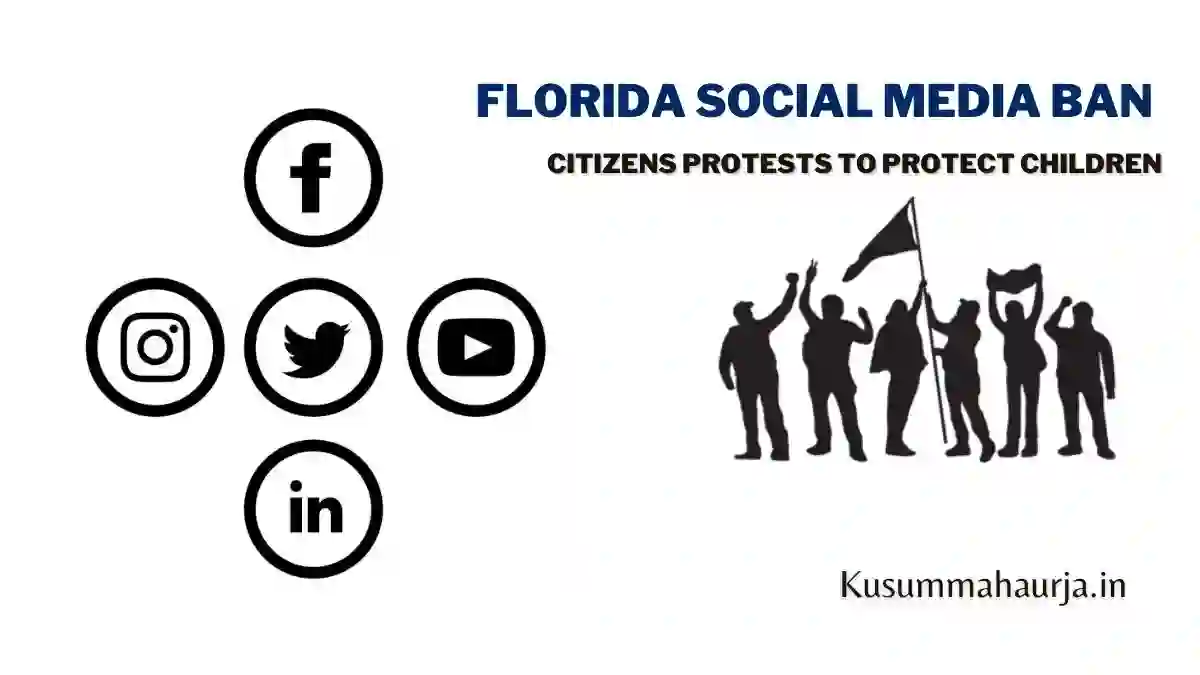Florida Social Media Ban: Florida House proposes banning social media for under-16s, sparking free speech vs. child safety debate.
In recent years, the influence of social media on our lives has grown exponentially. While it has brought numerous benefits, concerns about the impact of social media on children have also emerged. In Florida, citizens are taking a stand and advocating for a social media ban for children. This movement aims to protect the well-being and mental health of the younger generation.
The Dark Side of Social Media
Social media platforms have become an integral part of our daily lives, providing us with a means to connect, share, and express ourselves. However, the excessive use of social media has raised concerns about its effects on children’s mental health, self-esteem, and overall well-being.
Studies have shown a correlation between increased social media usage and a decline in mental health among young individuals. Constant exposure to curated and often unrealistic images and lifestyles can lead to feelings of inadequacy, anxiety, and depression.
Bullying and cyberbullying have also become prevalent issues on social media platforms. The anonymity provided by these platforms can embolden individuals to engage in harmful behavior, leaving lasting emotional scars on the victims.
The Florida Citizens Protests
Recognizing the potential harm social media can inflict on children, concerned citizens in Florida have taken a stand to protect their younger generation. Protests advocating for a social media ban for children have gained momentum, with parents, educators, and mental health professionals joining forces.
The movement argues that children under a certain age should not have unrestricted access to social media platforms. They believe that children’s mental and emotional development can be negatively impacted by the constant exposure to the pressures and dangers of social media.
Advocates for the ban propose age restrictions and stricter regulations to limit children’s access to social media. They argue that this will provide children with a healthier environment to grow and develop, free from the potential harms associated with excessive social media usage.
The Importance of Parental Involvement
While the call for a social media ban for children is gaining traction, it is important to note that parental involvement and guidance play a crucial role in protecting children from the negative effects of social media.
Parents should educate themselves about the platforms their children are using and actively monitor their online activities. Open communication and setting boundaries can help children develop a healthy relationship with social media.
Additionally, teaching children about responsible online behavior, digital citizenship, and the potential risks of social media can empower them to make informed decisions and protect themselves in the digital world.
The Future of Social Media Regulation
Florida citizens’ protests to ban social media for children have sparked a broader conversation about the need for social media regulation. While the issue is complex, it is clear that measures need to be taken to protect the well-being of children in the digital age.
It is essential for lawmakers, technology companies, parents, and educators to come together and find a balance between the benefits and risks of social media. Stricter regulations, age restrictions, and improved parental controls can contribute to creating a safer online environment for children.
As the movement gains momentum, it is crucial to consider the long-term effects of social media on children’s mental health and well-being. By taking proactive steps to address these concerns, we can ensure that social media remains a positive force in our lives while safeguarding the youngest members of our society.
